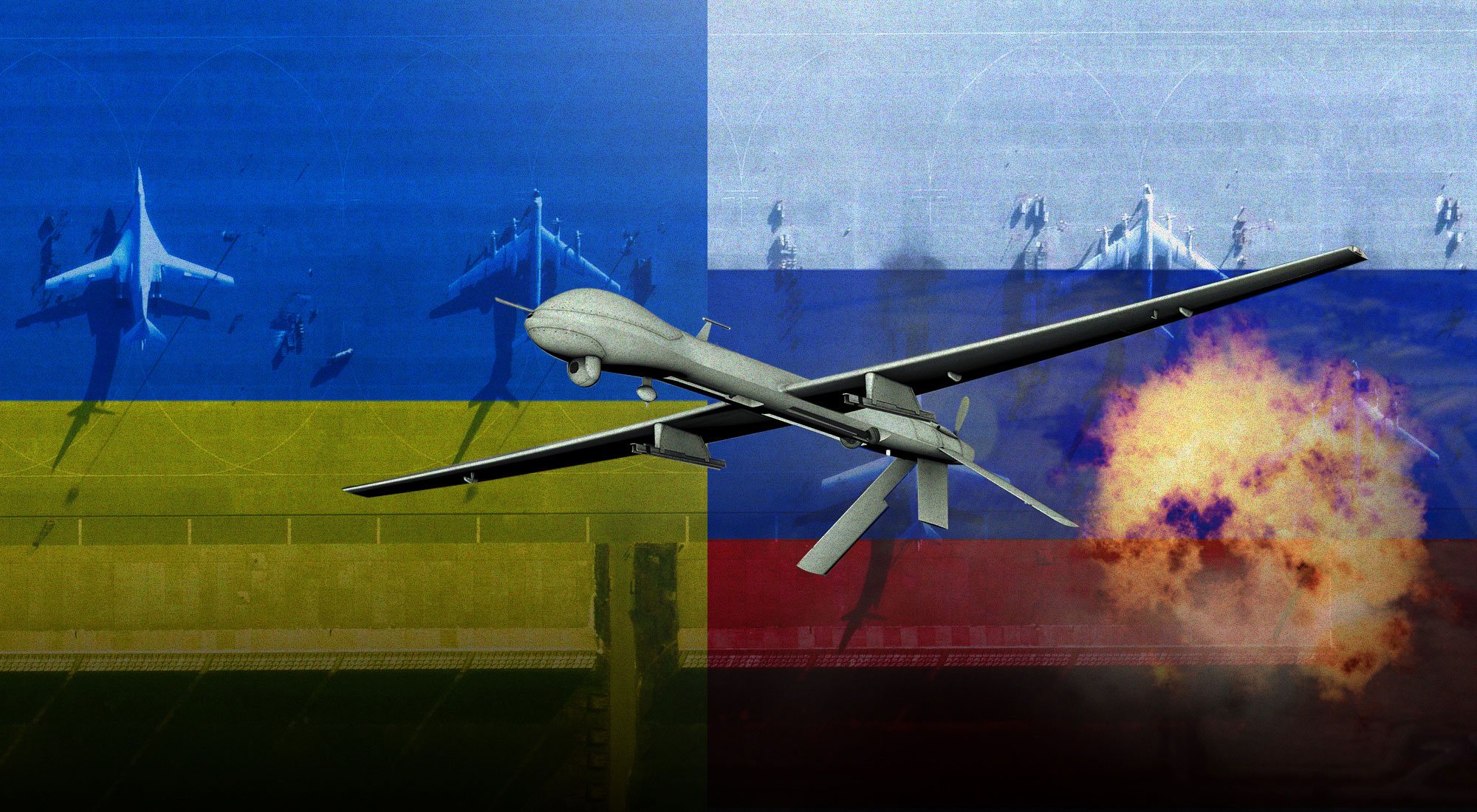This year will see the 20th anniversary of the terrible attacks of 9/11 on the United States. It will be yet another challenging moment in the US but even harder given that the ensuing wars that it triggered are far from over. US forces remain deployed in war-torn countries, including Afghanistan, Iraq, Somalia, and Syria.
Joe Biden will be the fourth president to address these so-called “forever wars” while also handling major security threats posed by Iran and North Korea. Success is not guaranteed, so he may not be the last. The Democratic 2020 platform was clear that “we need to bring our forever wars to a responsible end.[1]” The word responsible is key and may prove a tough challenge.
The incoming administration will face considerable pressure to explain how it will avoid any further undesired entanglements overseas and how it will propose bringing US troops home and bringing these endless wars to a close.
American foreign policy is rarely divorced from domestic policy. Its influence abroad depends largely on strength at home. The domestic appetite for any renewed US military adventures appears weak. Over the last 12 years, the country has endured a financial crisis, serious internal divisions, and a major pandemic. The intention will be to focus on the home front handling the Covid-19 pandemic and the vaccine rollout as the number one priority. Even though Biden now controls both houses, passing major legislation would be a challenge in Congress’s poisonous polarized atmosphere.
Yet nearly every president starts by proclaiming their priorities are domestic but find international crises suck them in. This is particularly the case with the Middle East. America’s interests are so interwoven with global affairs it is impossible to separate the international from the domestic. Can Biden rebuild the shattered American economy without a clear strategy for dealing with China? He will be aware that China is looking at America and is just waiting for an opportunity to test the new administration.
A desire to extract the US from these forever wars certainly unites Biden and Trump. The outgoing president was belligerent in tone but consistently sought to withdraw US forces from abroad. His Vice-President, Mike Pence, proudly boasted on Twitter that “our administration is the first in decades that did not get America into a new war.”[2]
Even in the last days of the administration, in January 2021, to be precise, the Pentagon released significant announcements about troop withdrawals in both Iraq and Afghanistan.[3] Trump has also ordered a withdrawal of nearly all forces from Somalia by early 2021[4]. Overall, the US still has just under 200,000 troops deployed overseas,[5] only a small drop since Trump took office, and far less in percentage terms than the troop cuts during the Obama administration.[6]
Trump tried to end these wars. He asked many of the tough questions and was not always satisfied with the answers. Nevertheless, even this intervention-skeptic could not bring the troops back. Some still remain skeptical pointing out that many redeployments were just reshuffling troops.[7] Trump’s decision to employ a hawkish John Bolton also raised eyebrows. Getting the troops back home chimes with the predominant anti-interventionist bent of most Democrats. Isolationism is also on the rise. However, many Republicans still oppose such trends, notably John Bolton, Trump’s former National Security Adviser.
The incoming Biden national security and foreign affairs team contains many Obama-era appointments, so assessing the Obama years may be instructive. The Obama administration had a checkered record on these forever wars. Obama withdrew forces from Iraq but expanded them in Afghanistan. He kept out of Syria only to intervene to thwart ISIS in both Syria and Iraq. A skeptic about intervention in Libya, Obama eventually promoted and backed what was effectively a no-drive zone in the North African state. His 2015 Iran deal did not survive its encounter with President Trump, who ripped it up.
Critics also point out that the massive expansion of the targeted assassination program and drones’ use often did not help end these wars but prolonged them. Biden will put allies first to rebuild the ties with democratic states that underwent a buffeting under Trump. He will look no doubt to obtain their assistance in ending these wars and presenting a more united front to Russia in Syria, for example.
Biden’s options will be hampered by the historically low approval levels of the US internationally. According to a Gallup opinion poll, US approval ratings dropped to historic lows even amongst allies such as Ireland (20 percent), the United Kingdom (15 percent), Denmark (14 percent), Switzerland (10 percent), Germany (6 percent) and Iceland (5 percent).[8]
Another criticism is the involvement in expensive nation-building projects. It is hard to point to recent success in this domain. Enormous resources pumped into Afghanistan did not bring the desired change, not least because of internal challenges and corrupt government. Who can forget the failure in Iraq? Despite investing massive resources in the country after the 2003 war, Iraq today remains wracked by divisions, sectarianism, and woeful corruption levels.
Given the above failures, the recent tendency has been to head to the other extreme to avoid reconstruction and nation-building attempts. Iraq’s Mosul, Syria’s Raqqa, and Libya, in general, have witnessed this. Consider the level of destruction in Mosul, Iraq’s second-largest city. The damage to the old city of Mosul alone was estimated at $1 billion. Still, across the whole city, anywhere between 50 percent and 75 percent of public buildings were believed to have been destroyed.[9]
External nation-building is extremely challenging in a post-war environment. It is a long time since the successful post-World War II reconstruction of Germany and Japan. It is doubtful any US government could dredge that sort of domestic support for such an undertaking in this century. The challenge is that political leaders often forget this or downplay this when considering ordering the troops in.
The question is though, whether successful nation-building is an essential ingredient to ending these forever wars. Take the war on ISIS. The Obama and Trump administrations’ efforts alongside allies saw the end of the terror outfit. However, ISIS is far from defeated and continues to pose a threat. It feeds off the lingering resentment and increasing anger at the lack of reconstruction.
Afghanistan
The two-decade deployment in Afghanistan has to be questioned. Extremist terrorist groups have many different bases across the globe where they have found refuge. Afghanistan is not even the epicenter of this activity. Obama was clear in his recent memoirs, “the Afghan campaign had always seemed to me a war of necessity.”[10]
Biden was opposed to Obama’s troop surge in Afghanistan in 2009.[11] Extracting troops will take time, especially if it is done in the sort of responsible fashion that would meet with Biden’s approval. Biden, unlike Trump, will be concerned about what kind of Afghanistan will be left behind.
One of the last acts of the Trump administration was to reduce deployment in Afghanistan. On January 15, 2021, Acting Defence Secretary Christopher Miller announced that US forces would be reduced to just 2,500 from 5,000, the lowest levels since 2001. The Pentagon is even looking to complete a full withdrawal by May 2021. Biden’s opponents may portray any further withdrawal as a sign of weakness, even those who said nothing when Trump wished to do the same.
Somalia
The US remains involved in combatting terrorist groups in Somalia, notably Al-Shabab, Al-Qaeda, and ISIS. Bombing these groups started under President George W. Bush but continues today. Under Trump, the US has increased the number of strikes on targets in Somalia. US forces on the ground are minimal but many Somalis feel as necessary to ward off Al-Shabab, which intimidates the local population and continues to carry out attacks on January 2, 2021, in Mogadishu.[12]
President Trump announced in December a withdrawal of 700 US troops in Somalia. However, the deployment of 5,000 US sailors and marines off the Horn of Africa later that month shows that the US military knows how vital this region is for US interests, including the security of shipping.
Syria
US involvement in Syria is minimal in comparison to other theatres of war. From the outset, the US under both Obama and then Trump was averse to deploying large numbers of troops, and for the most part, tried to defeat ISIS by bombing from the skies. This was always a flawed approach and led to much higher civilian casualties and destruction of key infrastructure in both Syria and Iraq.
Yet, the US and its European and Arab allies are grimly affected by events in Syria. While Syria imploded into civil war, it also exploded into the region, creating a refugee crisis, a dangerous incubator for extremism, and a political vacuum where regional and international rivals competed at the expense of Syrian lives and futures.
It is not clear Biden will make Syria a priority or radically alter the US approach. He has appointed Brett McGurk, who resigned from the Trump administration, as Middle East coordinator on the National Security Council. McGurk backed the US military presence in Syria and has been highly critical of the Turkish authorities, even claiming that Turkey may have known of the whereabouts of Abu Bakr Al-Baghdadi, the former leader of ISIS.
Biden is also keen to honor pledges to support Kurdish groups in Syria who fought against ISIS. On the counter-terrorism side, the US will be concerned with the spread of attacks by ISIS and groups like Hurras Al-Din, including Turkish-controlled areas of northern Syria. ISIS activity is expanding, not shrinking. [13]
Biden is likely to maintain or even increase the existing presence in Syria. A US presence on the ground gives him a seat at the table and could help influence any political process, not allowing Russia to dominate proceedings totally.
Iraq
Iraq will be crucial to any hope of bringing various wars to an end. The complete lack of an effective government has allowed regional actors, not least Iran, to interfere and even dominate the domestic Iraqi scene.
The incoming Biden administration would be wise to develop strategies not just to stabilize Iraq but help it out of the quagmire the US helped to create. Iraqi youth unemployment is at 36 percent.[14] Unless this is addressed in tandem with improving the woeful quality of governance and high levels of corruption, it is hard to see a positive path forward. Doing so should limit Iranian influence in the region and reduce the ability of groups like ISIS to profit from widespread anger among Iraqi Arab Sunnis.
For the time being, a US presence in Iraq to assist in counter-terrorism is sensible given the grave threat that ISIS continues to pose. However, the rationale for such a deployment has to be made more transparent for the US domestic audience and Iraqis. The US has to demonstrate it is a reliable partner for Iraqis. As ever, Russia and China are both positioning themselves to profit from further US failures.
Conclusion
What will or can President Biden do? If ending the endless wars was easy, his two immediate predecessors would have done it. To do it responsibly is an immense challenge. As much as the US might wish to exit these arenas, the fear is too great as to who fills the vacuum they leave behind, whether extremist groups, brutal regimes, or rival powers like Russia and Iran, increasingly Turkey.
Biden will have to invest in US diplomacy and try to reinvigorate the State Department. He will need America’s finest diplomats to show energy, creativity, and persistence under his overall strategic direction. They will need to know what that is, a world away from the pilotless juggernaut of US diplomacy of the last four years.
On the ground in these endless wars, realistic and obtainable goals will have to be set. He would be wise to pay more attention to the people’s interests and aspirations in these war-torn countries and put them at the heart of his approach.
Biden will need allies to share the load, not least in Afghanistan. European allies need to wake up to the US less and less willing to deploy overseas and adapt according to an increasingly isolationist-minded American leadership.
Clarity of vision and goals will help Biden’s team but also his allies. Trump liked to keep others guessing but what America’s friends are crying out for is dependable leadership that sticks to its commitments and sees things through.
References
[1] Democratic 2020 Platform https://democrats.org/where-we-stand/party-platform/renewing-american-leadership/
[2] Tweet from Mike Pence, January 18, 2021 https://twitter.com/Mike_Pence/status/1350978793549275136?s=20
[3] Jim Garamone, US Department of Defense, January 15, 2021, https://www.defense.gov/Explore/News/Article/Article/2473884/us-completes-troop-level-drawdown-in-afghanistan-iraq/
[4]Ryan Browne, CNN, December 19, 2020, US forces begin to move out of Somalia
https://edition.cnn.com/2020/12/19/politics/somalia-troop-withdrawal-trump/index.html
[5] Thomas Gibbons-Neff and Eric Schmitt, New York Times, October 21, 2019, Despite Vow to End ‘Endless Wars,’ Here’s Where About 200,000 Troops Remain,
https://www.nytimes.com/2019/10/21/world/middleeast/us-troops-deployments.html
[6]Christopher Giles, BBC Online, October 16, 2020, US election 2020: Has Trump kept his promises on the military?
https://www.bbc.co.uk/news/election-us-2020-54060026
[7] Ben Wolfgang, Washington Times, December 31, 2020, Trump’s efforts to end ‘forever wars’ only reshuffles deployed troops,
https://www.washingtontimes.com/news/2020/dec/31/trump-efforts-end-forever-wars-fall-short/
[8] Julie Ray, December 17, 2020, Gallup: Biden Inherits a Battered US Image Abroad,
https://news.gallup.com/poll/327629/biden-inherits-battered-image-abroad.aspx
[9] Philip Whiteside, January 31, 2019, Sky News, how is the reconstruction of Iraq going?
https://news.sky.com/feature/8m-tonnes-of-debris-the-daunting-task-of-rebuilding-iraq-11621362
[10] Obama, Barack. A Promised Land (p. 410). Penguin Books Ltd. Kindle Edition.
[11] Obama, Barack. A Promised Land (p. 413). Penguin Books Ltd. Kindle Edition
[12]Arab News, January 2, 2021, 5 killed, 14 wounded in suicide attack in Somali capital,
https://www.arabnews.com/node/1786206/world
[13] http://www.understandingwar.org/backgrounder/syria-situation-report-december-16-2020-january-7-2021
[14] World Bank, Breaking Out of Fragility A Country Economic Memorandum for Diversification and Growth in Iraq, 2020. https://openknowledge.worldbank.org/bitstream/handle/10986/34416/9781464816376.pdf?sequence=4&isAllowed=y








